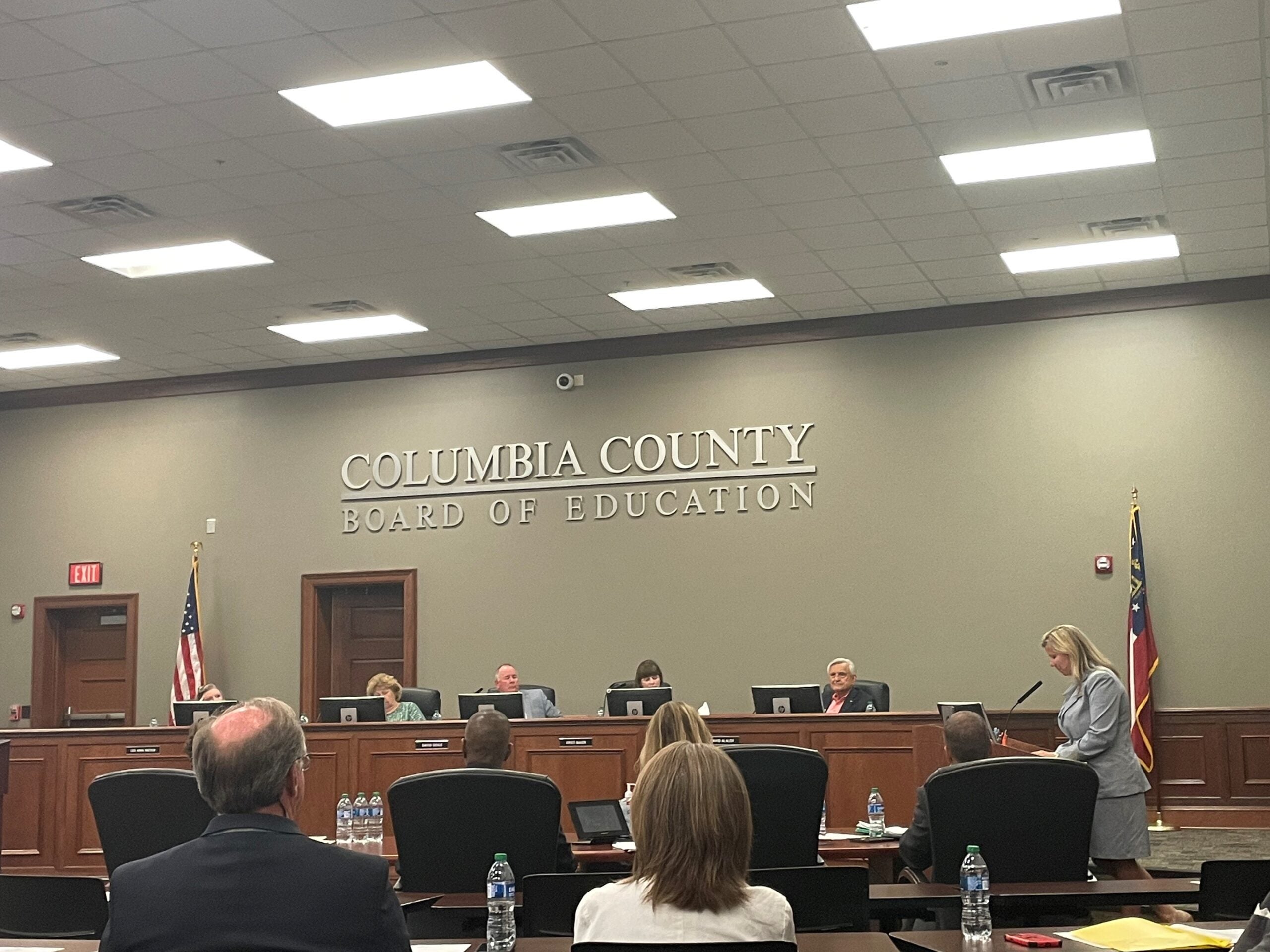School administrators presented largely good news to the Columbia County Board of Education during its latest work session Tuesday evening after the millage rate hearing.
Assistant superintendents Kristen Carroll and Steven Cummings presented the student achievement update, sharing the results of the 2022-2023 end of year diagnostic for mathematics and reading.
All students in kindergarten through eighth grade participate in a diagnostic three times a year to help teachers assess academic growth throughout the year, noted Carroll.
“Teachers use the data to determine the instructional focus and to plan for small group and personalized instruction,” Carroll said. “This data has also given schools an additional measure to assist with identifying students who are gifted and talented.”
By the end of this past school year students from kindergarten through fifth grade had increased their reading performance to at or above grade level, with kindergarteners by 69%, first graders by 59%, third grade 51% growth, fourth 44% and fifth grade by 32%, said Carroll.
Assessments are conducted for sixth through eighth grade as well, said Assistant Superintendent Cummings. Data showed that sixth and seventh grade students ready to learn at their grade level in reading increased by 9% from fall to spring, and by 6% for eighth grade students.
“Our students outperformed the national and state percentages for students above grade level,” Cumming told the school board members.
LeAnne Gregg, director of elementary curriculum and instruction, explained to the school board that Columbia County was also exceeding the standards of Georgia Senate Bill 48, signed by Governor Brian Kemp in 2019, which requires school systems to screen kindergarteners for signs of dyslexia, and the Georgia Early Literacy Act, signed earlier this year, which aims to improve literacy education standards and requires intervention plans for students with significant reading deficits.
“Our students in K-5 are already receiving high quality instruction in phonemic awareness (the ability to hear, identify and manipulate sounds), phonics fluency, vocabulary and comprehension in writing,” said Gregg. “Our reading screener is administered three times each year and assists teachers in planning instruction, identifying gaps and measuring student proficiency.”
Human Resources Officer Tony Wright told the board that the district’s HR department was preparing to address 35 certified faculty vacancies, 20 of which are in special education. Wright said the district will continue to hire over the next eight days, with a special emphasis on speech language pathologists and autism spectrum disorder teachers.
Skyler Q. Andrews is a staff reporter for The Augusta Press. Reach him at skyler@theaugustapress.com.









